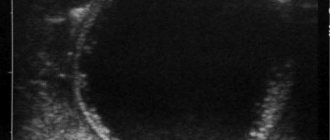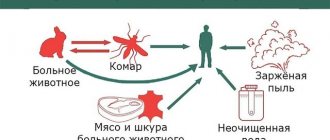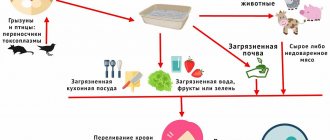Spring and autumn are the most unpredictable seasons. The only thing that repeats every year is the huge number of people who have become ill with acute respiratory infections (ARI) and acute viral diseases (ARVI) .
Symptoms of acute respiratory infections
From the first days of acute respiratory infections, the patient’s temperature rises, the throat becomes inflamed, it either becomes covered with a white coating or becomes red. A cough begins, at first dry, then turns into bronchitis with a wet cough. Mucus begins to come out of the nose, first clear, and then with pus.
ARVI symptoms
- sneezing, mucus formation;
- weakness and lethargy of the patient;
- temperature rises to 38 degrees already on the second day of illness;
- damage to the mucous membrane of the eyes and gastrointestinal tract;
- cough and runny nose become wet.
1
Consultation with a therapist in MedicCity
2 Consultation with a therapist in MedicCity
3 Consultation with a therapist in MedicCity
A little more terminology
ARI is a very broad concept. We are familiar with it like a cold. Main symptoms: sore throat, runny or stuffy nose, hoarseness, chills, malaise, slight fever. ARI combines diseases of various natures (viral, bacterial, fungal, mixed). Manifestations of acute respiratory infections have a fairly specific location (focus of infection) with a predominance of local lesions of the mucous membranes (nose, throat, vocal cords).
ARVI is a narrower concept that assumes a viral cause of the disease. The symptoms are close to those of acute respiratory infections, but have more pronounced signs of intoxication.
Neither acute respiratory infections nor acute respiratory viral infections are diagnoses! These are only general concepts that have left the medical vocabulary. While "flu", "ARI" and "ILI" are medical terms.
ARI is an acute respiratory infection.
ILI is an influenza-like illness.
How to avoid illness
Prevention of influenza and ARVI is similar.
- General strengthening of the immune system is useful - hardening, physical activity, daily walks in the fresh air. This should not be done occasionally, but regularly and systematically. Among physical activities, swimming, running and cycling are especially effective. It is worth selecting types of activity taking into account individual characteristics and age.
- Complete nutrition. The body's resistance is increased by foods that contain complete proteins (poultry, fish, seafood, legumes, eggs) and vitamins C (sauerkraut, rose hip decoction, citrus fruits, black currants, kiwi, white cabbage and broccoli). Other fresh vegetables, fruits and berries in season should appear on the table regularly.
- During the peak of epidemics, it is better not to visit crowded places. If public places cannot be avoided, you should use masks and gloves, and wash your hands thoroughly after coming home.
- Regular rinsing of the nose with solutions containing sea water is useful.
- The house needs to be regularly wet cleaned, the room ventilated and the air constantly humidified.
- Adequate sleep, rest and relaxation, and an established daily routine will also help strengthen the body's defenses.
- Doctors also consider influenza vaccination to be an effective preventative measure.
Flu and ARVI are serious diseases that should not be underestimated. It can be quite difficult to distinguish them. Correct diagnosis will help you choose the right therapy and quickly overcome the disease. At the first symptoms of the disease, you should immediately consult a doctor, as self-medication is fraught with the development of complications.
FIND OUT PRICES
Main signs and symptoms of acute respiratory infections, acute respiratory viral infections and influenza
(in the first 24-48 hours from the onset of the disease)
| Sign* | acute respiratory infections | ARVI | Flu |
| Cause (etiology) | Viruses, bacteria, etc. | Various viruses | Only influenza viruses |
| Epidemiological situation | – | + | ++ (declaration of influenza epidemic) |
| Contact with the patient | – | + | +++ |
| Acute onset (with the onset of fever), against the background of complete health | – | + | +++ |
| Previous provoking factor (hypothermia, temperature contrast, etc.) | +++ | + | – |
| Difficulty in nasal breathing | ++ | +++ | +/– |
| Runny nose | ++ | +++ | +/– |
| Pain or discomfort in the throat | +++ | ++ | +/– |
| Cough | ++ | +++ | ++ |
| Severe weakness, fatigue, lethargy | +/– | + | +++ |
| Sleep disturbance | +/– | +/– | ++ |
| Increased excitability | – | + | +++ |
| Sweating | ++ | + | ++ |
| Decreased appetite | + | ++ | +++ |
| Nausea, vomiting | – | + | ++ |
| Temperature rise to 38.5°C | +++ | ++ | – |
| Temperature rise above 38.5°C | + | ++ | +++ high fever, persistent from the first hours of the disease |
| Body aches, chills | + | ++ | +++ |
| Muscle pain | – | + | +++ |
| Muscle tremors | + | ++ | +++ |
| Headache, dizziness | + | + | +++ |
| Pain in the eye muscles when moving them or pressing on them | – | – | +++ |
| Photophobia, lacrimation | – | – | +++ |
| Nosebleeds, pronounced blood vessels in the eyeball, hemorrhagic rashes | – | – | ++ |
*Characteristics of the trait according to the probability of presence/degree of expression:
| – | no or unlikely/pronounced |
| + | occurs / is expressed slightly (weakly) |
| ++ | highly probable / moderately expressed |
| +++ | clearly marked/pronounced significantly (brightly) |
This table only generally characterizes the manifestations; it is necessary to remember about the individual course and atypical forms of the disease.
You need to seek help from a doctor!
Prevention. Is a flu vaccination necessary?
Vaccination is the most important preventive measure against influenza. It is carried out much earlier than the expected epidemic, usually in October–November. The protective effect of the vaccine is one year, so it must be repeated annually. There are practically no contraindications to modern vaccines. Vaccination is indicated for the following population groups (however, you should consult your doctor before undergoing it):
- Children of preschool and school age;
- elderly people (over 65 years old);
- persons with a high probability of infection (military contingents, medical personnel, workers in the sphere of consumer services, transport, educational institutions);
- patients who often suffer from ARVI;
- patients with chronic bronchopulmonary diseases (especially chronic obstructive pulmonary disease);
- patients with chronic heart failure, chronic kidney disease;
- patients with weakened immune systems (diabetes mellitus, HIV infection, spleen removed, or receiving glucocorticoids and cytostatics).
During a flu epidemic, it is too late to administer the vaccine. In this case, it is important to wash your hands with soap and water more often and ventilate the room, wear medical masks in public transport, it is possible to use rimantadine, as well as oxolinic ointment in the nose.
Hardening procedures (rinsing the mouth and nose with cold water, walking barefoot on a cold floor, cold rubbing, dousing, etc.) are important if they are carried out for a long time and systematically. You should not start hardening if a person is sick or in the recovery stage.
Signs of depression and excitation of the central nervous system
| Sign* | CNS depression | Excitation of the central nervous system |
| General activity | reduced | the child is extremely irritable motor restlessness convulsions are possible |
| Sucking | sluggish | may not change or the baby refuses the breast/bottle |
| Scream | lethargic | piercing frequent |
| Dream | frequent difficult to wake up | shallow rare it's hard to fall asleep |
Catarrhal manifestations of the upper respiratory tract (runny nose, difficulty nasal breathing, sneezing, cough) may be absent.
Differential diagnosis: how to distinguish acute respiratory infections from acute respiratory viral infections?
Although laboratory tests are necessary to confirm the diagnosis, in practice, an experienced physician is highly likely to be able to distinguish acute respiratory disease caused by bacteria from acute respiratory viral disease. Although the symptoms are very similar, there are still small nuances.
A general blood test with a detailed leukocyte formula usually allows you to confirm the doctor’s guess. Viral infections are much more likely than bacterial diseases to become causes of epidemics for the simple reason that viruses spread more easily by airborne droplets and are easier to become infected with. Therefore, if there are many patients with the same symptoms, doctors are inclined to believe that the cause of the disease is acute respiratory viral infections.
There are about 300 microorganisms known in the world that, when they enter the human body, cause symptoms of acute respiratory diseases or infections. Among them are influenza viruses, adenoviruses, rhinoviruses, mycoplasmas, chlamydia, streptococci, pneumococci and staphylococci. Some of the most well-known acute respiratory viral infections are influenza viruses A, B and C.
About the mode
Rest, bed rest and drinking plenty of fluids are recommended.
If the child is breastfed, then more frequent breastfeeding is advisable. You can offer water, as the need for liquid increases as the temperature rises.
If the baby is bottle-fed, then it is necessary to offer the baby regular drinks (water or baby teas) more often. Adding a fermented milk mixture to your diet, for example, Nutrilak Premium Fermented Milk, will facilitate the digestion process and maintain the balance of the microbiota, promoting a speedy recovery.
Children over 1.5-2 years old often experience a decrease in appetite, so children's drinks, for example, Nutrilak Premium 3 or 4, will be indispensable. They will support the baby's immune system and quickly restore his strength.
Coronavirus symptoms by day: how Covid develops and progresses in adults
Personal data processing policy
1. General Provisions
1.1. This Policy defines the procedure for processing personal data and measures to ensure the security of personal data at Grand Clinic on Chistykh LLC in order to protect the rights and freedoms of individuals and citizens when processing their personal data, including the protection of rights to privacy, personal and family secrecy guaranteed by the Constitution.
1.2. The personal data processing policy was developed in accordance with Federal Laws No. 152-FZ dated July 27, 2006 “On Personal Data” and No. 323-FZ dated November 21, 2011 “On the Fundamentals of Protecting the Health of Citizens in the Russian Federation”; Government resolutions No. 1119 dated 01.11.2012 “On approval of requirements for the protection of personal data during their processing in personal data information systems”, dated 09.15.2008 No. 687 “On approval of regulations on the specifics of personal data processing carried out without the use of automation tools”; by FSTEC order No. 21 dated February 18, 2013 “On approval of the composition and content of organizational and technical measures to ensure the security of personal data during their processing in personal data information systems.”
1.3. This Policy discloses the principles, procedure and conditions for processing personal data of individuals when seeking medical help from a medical organization.
1.4. The principles, procedure and conditions for processing personal data of the clinic’s personnel, as well as personal data processed in the process of fulfilling contractual obligations in the course of daily activities, are not considered in this Policy and are regulated by the internal regulatory documents of the medical organization.
2. Categories of personal data processed
2.1. Personal data of patients (persons who are a party to the contract for the provision of medical services) that are subject to processing: – passport data; – telephone numbers for contacting the patient (contact information); – information about the state of health, the presence or absence of diseases listed in the patient’s health questionnaire, completed during the process of collecting anamnesis; - any data from laboratory and diagnostic tests obtained by patients as a result of the examination.
2.2. The list of documents generated when a patient applies to a medical organization is provided for by the Civil Code, Federal Law dated November 21, 2011 No. 323-FZ “On the Fundamentals of Protecting the Health of Citizens in the Russian Federation”, Decree of the Government of the Russian Federation dated October 4, 2012 N 1006 “On approval of the Rules for the provision of paid medical services" - Federal Law "On the fundamentals of protecting the health of citizens in the Russian Federation" dated November 21, 2011 N 323-FZ (as amended by the Resolution of the Constitutional Court of the Russian Federation dated January 13, 2020 N 1-P), order of the Ministry of Health and Social Development dated May 2, 2012 No. 441n “On approval of the procedure for issuing certificates and medical reports by medical organizations.”
3. Purposes and terms of processing of personal data
3.1. The purposes of processing personal data of patients who contact a medical organization: – execution of an agreement for the provision of medical services, to which the patient is a party; – medical and preventive purposes (establishing a medical diagnosis, providing medical services, monitoring the quality of medical care, etc.).
3.2. The terms for processing personal data directly depend on the storage periods of civil contracts and medical documentation and are: – for personal data received in connection with the conclusion of an agreement for the provision of medical services – 5 years; – for personal data of special categories (health data) – 25 years in a medical organization, 75 years – in the archive.
4. Principles and conditions for processing personal data
4.1. The processing of personal data at Grand Clinic on Chistykh LLC is carried out on the basis of the following principles: – legality and fairness of the purposes and methods of processing; – limiting the processing of personal data to the achievement of specific, predetermined and legitimate purposes; – preventing the processing of personal data incompatible with the purposes of collecting personal data; – preventing the merging of databases containing personal data, the processing of which is carried out for purposes that are incompatible with each other; – processing only those personal data that meet the purposes of their processing; – compliance of the content and volume of processed personal data with the stated purposes of processing; – preventing the processing of excessive personal data in relation to the stated purposes of their processing; – destruction or depersonalization of personal data upon achievement of the purposes of their processing or in the event of the loss of the need to achieve these purposes.
4.2. A medical organization processes personal data only if at least one of the following conditions is present: – processing of personal data is carried out with the consent of the subject of personal data to the processing of his personal data; – processing of personal data is necessary to achieve the goals provided for by law (subparagraph 4, paragraph 2, article 10 of the Federal Law of July 27, 2006 No. 152-FZ); – processing of personal data is necessary for the execution of a contract to which the subject of personal data is a party; – processing of personal data is carried out, access to an unlimited number of persons is provided by the subject of personal data or at his request (public data); – personal data subject to publication or mandatory disclosure in accordance with federal law is processed; – personal data is processed in accordance with the legislation on compulsory types of insurance and insurance legislation.
4.3. A medical organization and other persons who have access to personal data due to work duties are obliged not to disclose to third parties or distribute personal data without the consent of the subject of personal data, unless otherwise provided by federal law.
5. Rights of the subject of personal data
5.1. The subject of personal data decides to provide his personal data and consents to their processing freely, of his own free will and in his own interest, without coercion or misleading on anyone’s part.
5.2. The subject of personal data has the right to receive information regarding the processing of his personal data, unless such right is limited in accordance with federal laws.
5.3. The subject of personal data has the right to demand clarification of his personal data, their blocking or destruction if the personal data is incomplete, outdated, inaccurate, illegally obtained or is not necessary for the stated purpose of processing, as well as take measures provided by law to protect his rights.
5.4. It is prohibited to make decisions based solely on automated processing of personal data that give rise to legal consequences in relation to the subject of personal data or otherwise affect his rights and legitimate interests, except in cases provided for by federal laws, or with written consent of the subject of personal data.
6. Ensuring the security of personal data
6.1. The security of personal data processed by a medical organization is ensured by the implementation of legal, organizational, technical and program measures necessary and sufficient to meet the requirements of federal legislation in the field of personal data protection.
6.2. Measures to ensure the security of personal data include, in particular: – appointment of a person responsible for organizing the processing of personal data; – publication of local legal acts regulating the rights and obligations of the personal data operator, describing a system of measures to protect personal data, defining access to personal data information systems; – identification of threats to the security of personal data during their processing in personal data information systems; – application of methods (methods) of information protection; – assessment of the effectiveness of measures taken to ensure the security of personal data before the commissioning of the personal data information system; – accounting of computer storage media of personal data; – detection of facts of unauthorized access to personal data and taking measures; – restoration of personal data modified or destroyed due to unauthorized access to it; – establishing rules for access to personal data processed in the personal data information system, as well as ensuring registration and accounting of all actions performed with personal data in the personal data information system; – control of measures taken to ensure the security of personal data and the level of security of personal data information systems.
7. Final provisions
7.1. This Policy is a local legal act, is publicly available and must be posted on the official website of the medical organization.
7.2. Control of compliance with the requirements of this Policy is carried out by the person responsible for organizing the processing of personal data.







